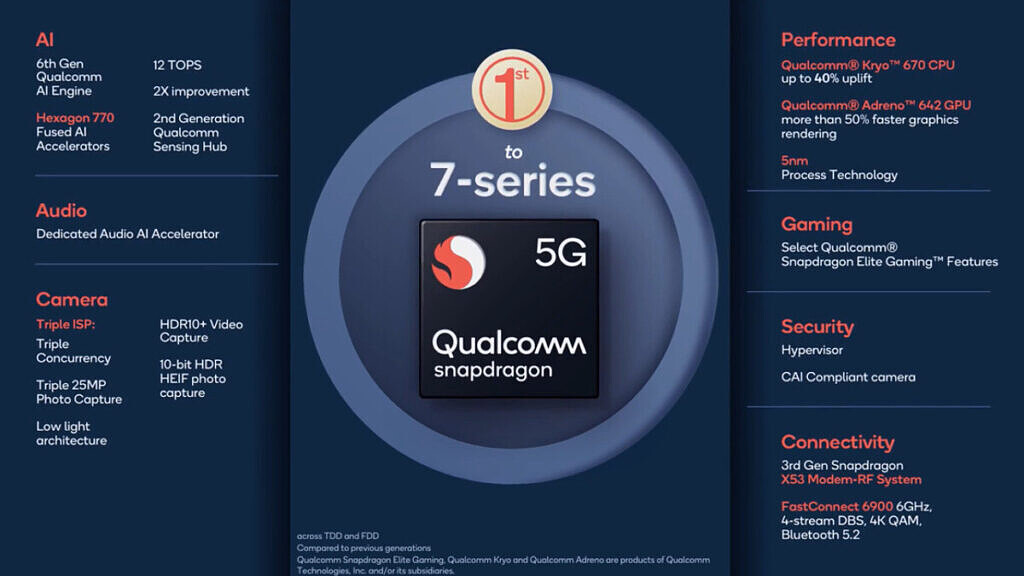
Qualcomm Presented Top Mid-Range 5nm Snapdragon 780G 5G
- Qualcomm has released the Snapdragon 780G 5G chip to push the top of the 7 series even higher.
- This is the first 5nm triple spectra chip to appear in Qualcomm’s upper mid-range category of products.
- While the 780G looks promising on paper, its market success will depend on the pricing.
Qualcomm has apparently identified a significant gap between the existing models of the 7 series and the flagship Snapdragon 888 chip, so the American chipmaker has released something to bridge it. The new Snapdragon 780G is now at the top of the range that is just one step below the flagship series and the first at this level to be made on a 5nm process. The chip brings several of the advantages we got with the 888, but in a somewhat discounted manner.
More specifically, we have a slightly downgraded triple ISP through Spectra 570, so the camera performance should still be brilliant, even if not as amazing as in the 888. In the AI, we have the Hexagon 770, capable of 12 TOPs, which is not even half of the 888 AI performance, but still better than any other 7-series chip, the Snapdragon 860, and the also 5nm Exynos 1080. The 5G modem used here is the X53, which has roughly half the data rate of the X60 used in the 888. The Wi-Fi 6E system is exactly the same, though.
Performance-wise, the 780G uses Kryo 670 cores clocked at 2.4 GHz but doesn’t have the Cortex-X1 beast in the package, of course. For the GPU, the Adreno 642 is present, able to deliver 1080p+ at 144 Hz, which is an unprecedented performance for the series. Also, the GPU drivers will be updatable here too, and the chip will be able to deliver True 10-bit HDR gaming with full ‘Snapdragon Elite Gaming’ features.
The fact that it’s a 5nm chip could bring amazing benefits in thermals and energy consumption, so all in all, this is a great addition to Qualcomm’s lineup. According to the announcement, it should be made available through actual products in the second quarter of 2021, so if you’re interested, you don’t have to wait for long.
The question that the consumer should be asking today is, would any model of the 7-series worth choosing against previous Snapdragon eighties like the 865+, for example. That will depend on the price of the 780G, of course - but in general, Qualcomm likes to keep the two categories distinct for a few years down the road. As good as the 780G may look, it isn’t enough to blur the separation line or make it a great value that will cannibalize the sales of previous generation higher range chips.








